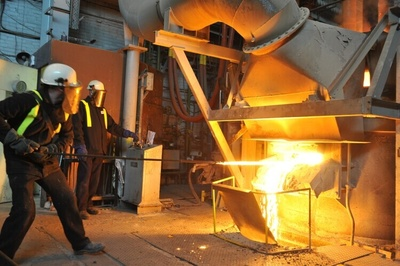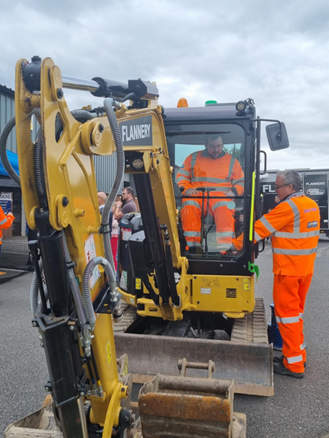In our survey only 48% of those who responded said that the development pipeline for low-carbon materials including concrete and steel is sufficient to meet net zero targets.
In an aim to support and drive the development of low-carbon materials, we’ve partnered with Cement 2 Zero, a UK-based demonstrator project dedicated to trialling zero-emission cement on an industrial scale.
During a two-year trial, we will work together with the Materials Processing Institute, the University of Cambridge, industry partners Atkins, Celsa, Day Aggregates and Tarmac to combine our expertise and to rigorously test each stage of the zero-emission cement production process. This ambitious endeavour to drive the decarbonisation of cement, has received substantial support including £6.5 million in government funding from UK Research & Innovation as part of the Transforming Foundation Industries Challenge.
Additionally, it aims to demonstrate that concrete can be recycled to create a slag forming addition that could, when cooled rapidly, replace Portland cement, further advancing sustainable practices within the industry. Traditional Portland clinker, a key component in cement production, is typically manufactured by subjecting limestone and other minerals to high-temperature kiln firing, a process responsible for over 50% of the cement sector's emissions.
Cement 2 Zero will utilise recycled cement as the flux in the electric steel recycling process. The resulting by-product, once cooled and ground, yields Portland cement clinker, which is then blended to create the 'zero-emissions' cement known as Cambridge Electric Cement.
After conducting successful concept-proving pilot melts, Cement 2 Zero is progressing to the industrial trial phase before being used on a live UK construction site, a significant step forward in our industry’s journey to net zero carbon emissions.





